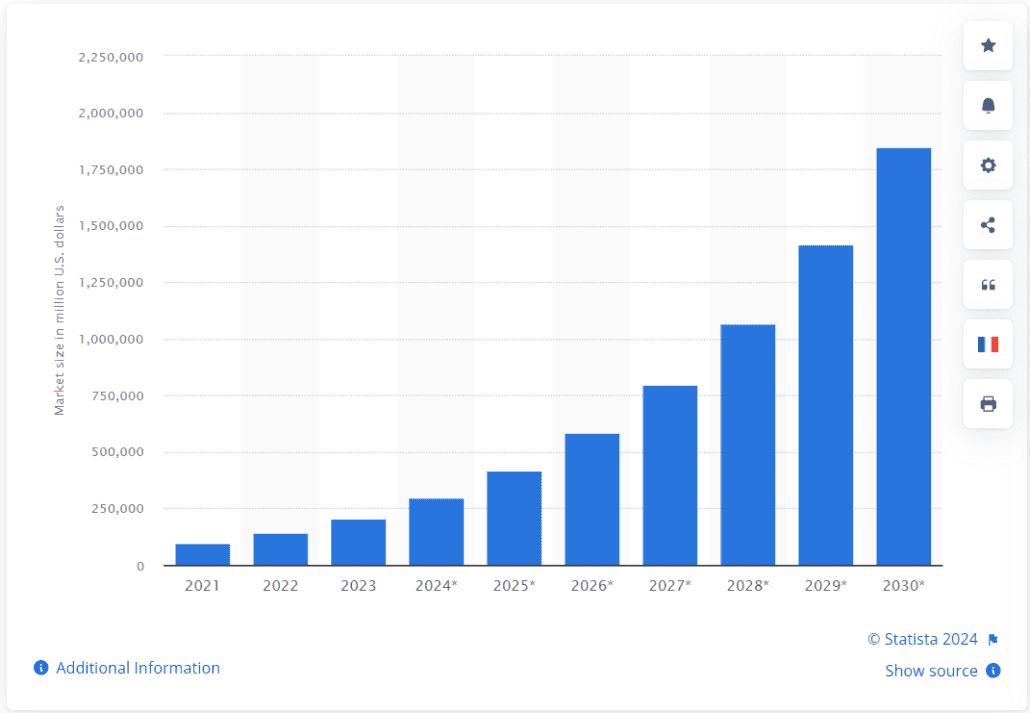Effects of AI on Jobs in the BPO Industry

The Business Process Outsourcing (BPO) industry has been a significant contributor to the global economy, providing millions of jobs and enabling companies to optimize their operations by outsourcing non-core activities. However, the BPO industry has evolved as a result of the introduction of artificial intelligence (AI). Artificial intelligence (AI) technologies, such as robotic process automation (RPA), natural language processing, and machine learning, have altered the field of work, opening up new career prospects and presenting concerns for employees.
Automation of Routine Tasks
One of the most immediate impacts of AI in the BPO industry is the automation of routine and repetitive tasks. Functions such as data entry, invoice processing, customer support, and basic query handling can now be performed by AI systems with high efficiency and accuracy.
Shift on Roles
While AI automates certain tasks, it also shifts the nature of many jobs in the BPO sector. Employees are increasingly required to develop skills that complement AI technologies, such as problem-solving, critical thinking, and emotional intelligence.
Creation of New Job Opportunities
The integration of AI into the BPO industry is also creating new job opportunities. There is a growing demand for roles related to the development, implementation, and maintenance of AI systems.
Upskilling and Reskilling the Workforce
As AI continues to transform the BPO industry, there is a pressing need for upskilling and reskilling the workforce. Employees must acquire new skills to stay relevant in an AI-driven environment.
OPPORTUNITIES OF AI IN BPO WORKFORCE
AI has an impact on the BPO sector that extends beyond conventional automation. It involves integrating expertise into a range of operations, which improves decision-making and efficiency in general.
- AI can automate repetitive and mundane tasks, freeing up employees to focus on more complex and strategic activities. This shift can lead to increased productivity and efficiency within BPO operations.
- Machine learning algorithms can analyze vast amounts of data quickly, providing insights and solutions that would take humans significantly longer to achieve.
- Automation of routine tasks through AI can lead to substantial cost savings for BPO companies. Reduced reliance on manual labor for these tasks can lower operational costs and increase profit margins.
- AI-driven chatbots and virtual assistants can handle customer inquiries and support services around the clock without the need for human intervention, further cutting down labor costs.
- The adoption of AI technologies necessitates a workforce skilled in managing and maintaining AI systems. This demand can lead to upskilling and reskilling opportunities for current employees.
- New job roles are emerging in the AI-driven BPO sector, such as data analysts, AI trainers, and supervisors for automated processes, providing fresh career paths for the workforce.
- AI can analyze customer interactions to provide personalized experiences and faster resolutions, improving overall customer satisfaction.
- Predictive analytics and sentiment analysis can help preempt customer needs and issues, enabling a proactive approach to customer service.
THREATS OF AI IN BPO WORKFORCE
AI-driven innovations improve efficiency and expedite procedures, but they additionally set traditional BPO job responsibilities to competition.
- The automation of routine tasks poses a significant risk of job displacement for workers performing low-skill, repetitive jobs. As AI systems take over these roles, many workers may find themselves redundant.
- The transition period may be challenging for workers who cannot easily acquire the new skills required for emerging roles in an AI-driven BPO environment.
- The rapid pace of AI integration can create a skills gap, where the existing workforce may not have the necessary expertise to manage AI systems effectively.
- Continuous training and education are required to keep pace with AI advancements, posing a challenge for both employees and employers in terms of time and resource investment.
- The use of AI in handling sensitive customer data raises ethical and privacy concerns. Ensuring compliance with data protection regulations is critical but can be complex and resource-intensive.
- There are risks associated with bias in AI algorithms, which can lead to unfair treatment of customers or employees if not properly addressed.
- Over-reliance on AI technologies can lead to vulnerabilities. Technical failures or cyber-attacks on AI systems can disrupt BPO operations significantly.
- Continuous maintenance and upgrading of AI systems are necessary to prevent obsolescence, which can be costly and demanding.
Artificial intelligence (AI) market size worldwide in 2021 with a forecast until 2030 (in million U.S. dollars)

SOURCE: https://www.statista.com/statistics/1365145/artificial-intelligence-market-size/
BALANCING THE OPPORTUNITIES AND THREATS
BPO companies should take a balanced strategy to maximize the advantages of AI while mitigating its risks:
- Strategic Implementation: Careful planning and gradual integration of AI can help manage the transition smoothly, minimizing disruption and job losses.
- Continuous Learning and Development: Investing in training programs to upskill the existing workforce and prepare them for new roles is crucial.
- Ethical AI Practices: Developing robust ethical guidelines and ensuring transparency in AI operations can help address privacy and bias concerns.
- Hybrid Work Models: Combining AI capabilities with human intelligence can create a more resilient and adaptable BPO workforce, leveraging the strengths of both.
In the BPO sector, artificial intelligence (AI) is a revolutionary force that offers enormous potential for increased productivity, cost reductions, and new career options. But it also brings with it the risk of job loss, skills gaps, and moral dilemmas. Through deliberate navigation of these possibilities and risks, the workforce in BPO can adapt and flourish in an automated future.
FREQUENTLY ASKED QUESTIONS
AI in the BPO (Business Process Outsourcing) industry is primarily used to automate repetitive tasks, enhance data analysis, improve customer service through chatbots and virtual assistants, and streamline overall operations. AI can handle tasks such as data entry, customer inquiries, and predictive analytics, thereby increasing efficiency and reducing costs.
AI is expected to transform the BPO workforce by automating routine tasks, which will lead to a shift in job roles. Employees may move from performing repetitive tasks to more strategic and analytical roles. This transformation will likely require upskilling and reskilling of the workforce to adapt to new technologies and processes.
Tasks most susceptible to automation by AI in the BPO sector include:
- Data entry and processing.
- Routine customer service inquiries.
- Basic technical support.
- Invoice processing and management.
- Order and transaction processing.
Yes, AI and human workers can coexist in the BPO industry. AI can handle routine and repetitive tasks, freeing human workers to focus on more complex, creative, and value-added activities. This collaboration can lead to increased overall productivity and job satisfaction as employees engage in more meaningful work.
Examples of AI applications in the BPO industry include:
- Chatbots and virtual assistants for customer service.
- Robotic Process Automation (RPA) for automating routine processes.
- Natural Language Processing (NLP) for analyzing customer interactions.
- Machine learning algorithms for predictive analytics.
- Automated data entry and data management systems.
Skills in demand in the future BPO workforce with the rise of AI include:
- Technical skills related to AI and machine learning.
- Data analysis and interpretation.
- Problem-solving and critical thinking.
- Emotional intelligence and customer relationship management.
- Adaptability and continuous learning.




